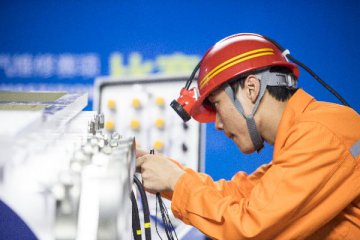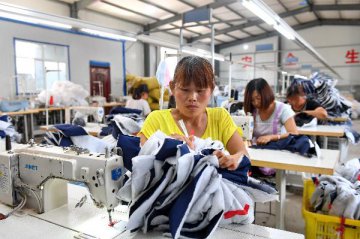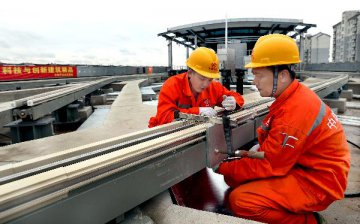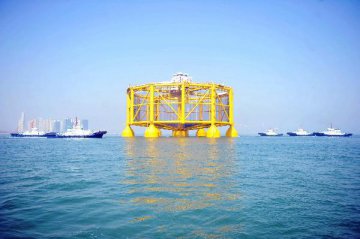
The macro-economic data for May, which was released recently, showed that China’s economy grew stably but slowly and downward pressure got intensified. In order to ensure steady economic growth in the second half of this year, it is necessary for China’s government to take good care of the hard-won trend of recovery in terms of macro-policy.
Regarding demand, real estate industry and re-stocking are the two major contributors to this round of economic recovery. But under pressure of real estate regulation policy, growth in sales and investment in real estate industry has slowed down significantly. The producer price index (PPI) has saw negative growth for two consecutive months, indicating that price of raw material is dropping and hence causes the re-stocking cycle to draw to a close. However, the policy of financial deleveraging pushes up interest rate remarkably and growth rate in currency hits a 20-year low, bringing certain contractionary effect to real economy. In terms of production, growth in industrial added value is much lower than the highest record made in March. The Caixin PMI, which has a leading significance, declines to contraction range in May after expanding for 9 months continuously. As for current trend, impetus for China’s economic recovery in the second half will be weakened gradually and economic growth will face strong downward pressure again.
But if this round of economic recovery ends here, it won’t be favorable to the implementation of various economic work in the future. It is because this round of recovery has drastically improved market expectation, enhanced various participants’ confidence in China’s economy and facilitated economic vitality. If it comes to an end, it will hurt market participants’ confidence in supply-side reform and the “L-shaped” economic trend, enhancing difficulty in stable economic growth. Therefore, it is essential to lengthen the duration of the economic recovery as much as possible, stabilize confidence of various participants, and create sound environment for the 19th National Congress of the Communist Party of China as well as the promotion of long-term reform.
In order to achieve this goal, macro-policy should be forward-looking and cannot fall behind the situation. This round of economic recovery broadens leeway for policy of preventing risk and makes measures of financial deleveraging and regulating financing of local government put to good use. These measures of preventing risks are indeed needed to long-term stabilization of economy and finance. But it should be known that these measures will bring adverse influence to short-term economic growth. Accordingly, they should be forward-looking and should not be too tightened.
As for financial deleveraging policy, the key is to keep balance. As China has excess savings, the rise of leverage is reasonable and inevitable. Therefore, deleveraging cannot be excessive. The economic situation in the past few quarters also shows that the economic recovery is conducive to the stability of leverage. Therefore, the leverage should be preserved in some sectors, but reduced in other sectors. It should guide leverage to enter sectors with fewer risks. Specifically, credits should be loosened leaving room for off-balance-sheet business returning to on-balance-sheet business. The bond market needs to restore its financing function. As actual interest rates rise rapidly due to the decline in PPI, nominal interest rates should be adjusted to weaken the tightening effect brought by rise in real interest rates.
As for fiscal policy, the key is to promote the recovery of infrastructure investment to hedge the pressure brought by slowdown in the real estate sector. If China wants to prevent non-standard financing of local government, it should take fiscal policy to increase financing support for infrastructure in other more standardized and transparent way to ensure the steady growth of infrastructure investment. On the contrary, if the fiscal policy is not liberal enough, measures that are intended to regulate local government financing will result in a contraction in infrastructure investment and increase the risk of economic growth. As a result, the policy is difficult to sustain.
All in all, the supply side reform has brought recovery to China’s economy. But we have to see that the economic recovery is a granted thing, it is a result of expansion in the demand side. At present, it should not only take use of the good environment created by the economic recovery to promote the structural reform but also take efforts to maintain the momentum of recovery. It should keep a balance between the two so that all works having done for the economic recovery will not be in vain.
Translated by Vanessa Chen and Coral Zhong
























Latest comments